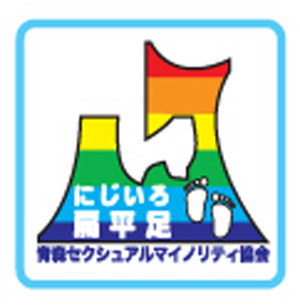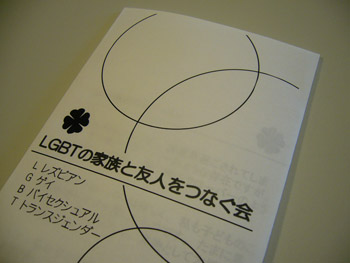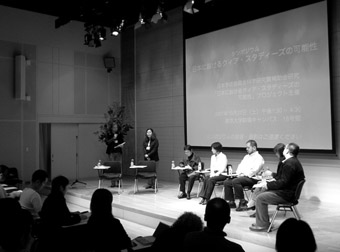Takako NIWA
ICU Post-graduate
【The article below is the same as the article that appears in the twelfth issue of the CGS Newsletter.】
The annual conference of the Women's Studies Association of Japan was held at Ochanomizu Women's University on June 27th and 28th, 2009. My general impression was that the association was not mired in the 30 years of its history, but was clearly looking ahead to the future. This was evident in the selection of general members for the positions of section meeting supervisors and in the fact that the symposium was held on the last day, not the first day, to sum up the whole conference.

 The issue of cell phone filtering for minors in Japan is being addressed by the government, corporations, third party organizations and even in the Diet. I am greatly concerned that websites and personal blogs for the interaction of sexual minorities and the provision of accurate information for them are at risk of being targeted as “harmful” by uniform filtering. This could not only aggravate the current prejudice, but also deprive sexual minorities of their support systems.
The issue of cell phone filtering for minors in Japan is being addressed by the government, corporations, third party organizations and even in the Diet. I am greatly concerned that websites and personal blogs for the interaction of sexual minorities and the provision of accurate information for them are at risk of being targeted as “harmful” by uniform filtering. This could not only aggravate the current prejudice, but also deprive sexual minorities of their support systems. Suppose that your daughter, son, mother, father, or anyone in your family all of a sudden came out to you saying they were lesbian, gay, bisexual, or transgender. How would you respond to it? Shock, confusion, denial, distress... We still live in a society in which LGBTs are often misunderstood. Families are usually astounded and confused by the news of their loved one’s deviant sexuality, and sometimes refuse to accept it. The Association for Families and Friends of LGBTs has been working to create a community-based space for families and friends of LGBT people. I interviewed Kansai member Ms. Naomi Shimizu and Kanto members Ms. Ryoko and Mr. Takeshi Kobayashi about their experience as parents of LGBT children and their involvement in the organization.
Suppose that your daughter, son, mother, father, or anyone in your family all of a sudden came out to you saying they were lesbian, gay, bisexual, or transgender. How would you respond to it? Shock, confusion, denial, distress... We still live in a society in which LGBTs are often misunderstood. Families are usually astounded and confused by the news of their loved one’s deviant sexuality, and sometimes refuse to accept it. The Association for Families and Friends of LGBTs has been working to create a community-based space for families and friends of LGBT people. I interviewed Kansai member Ms. Naomi Shimizu and Kanto members Ms. Ryoko and Mr. Takeshi Kobayashi about their experience as parents of LGBT children and their involvement in the organization. On October 27th 2007, a General Assembly for the Establishment of the Japan Association for Queer Studies (JAQS) was held at Tokyo University’s Komaba Campus. Close to 300 people braved the terrible weather to attend the session, despite the approaching unseasonal typhoon.
On October 27th 2007, a General Assembly for the Establishment of the Japan Association for Queer Studies (JAQS) was held at Tokyo University’s Komaba Campus. Close to 300 people braved the terrible weather to attend the session, despite the approaching unseasonal typhoon.